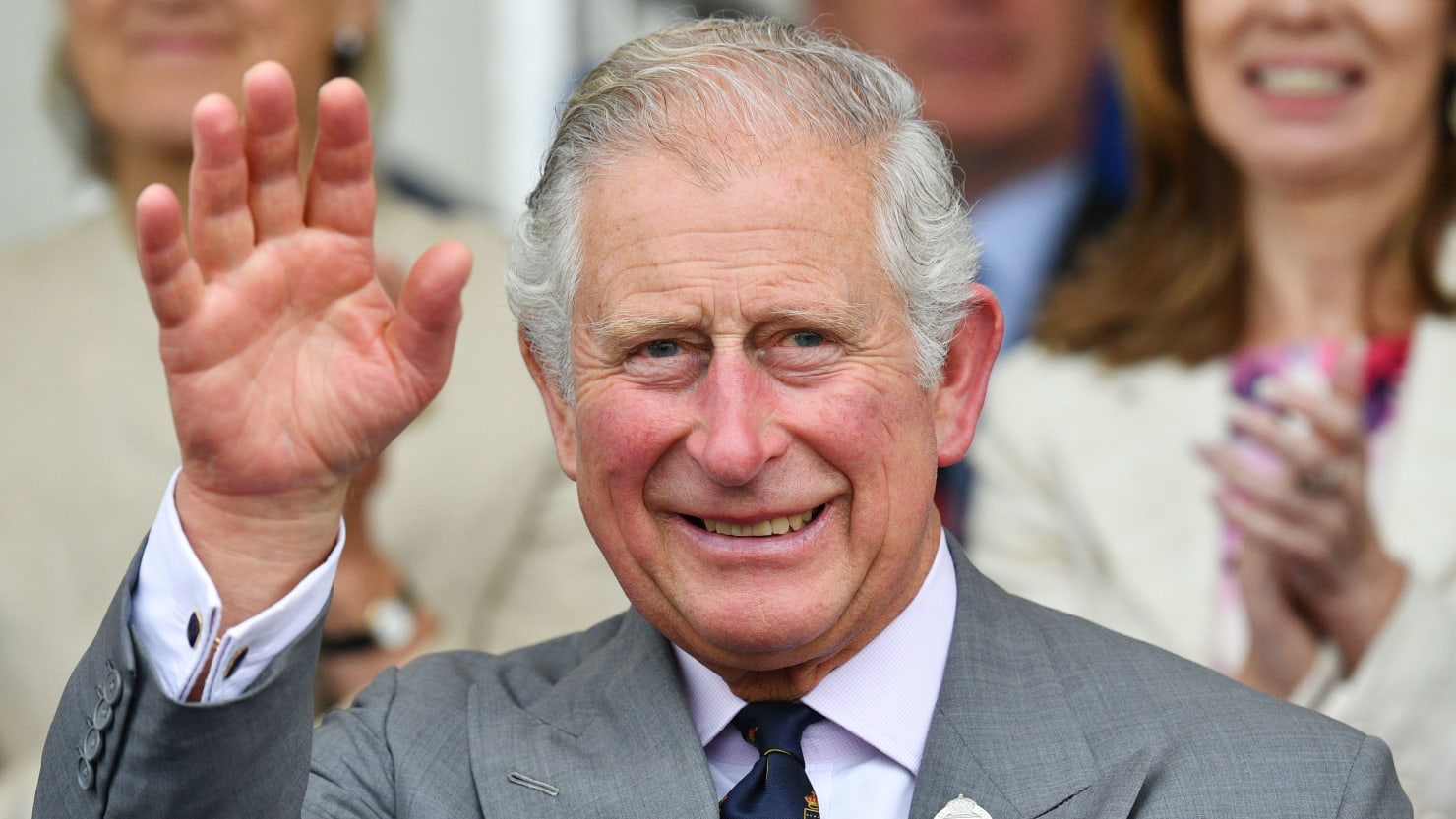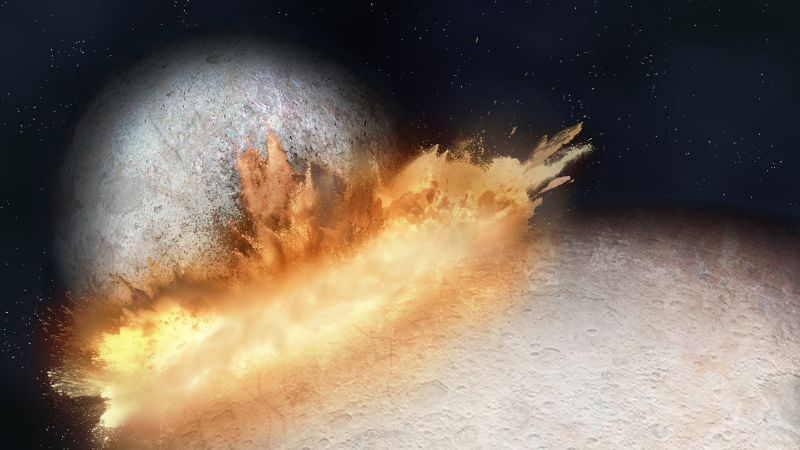Outside Bakhmut, Ukraine — While watching images from a drone camera in the sky, Ukrainian battalion commander Oleg Shiryaev warned his men in nearby trenches that Russian forces were advancing through a field toward a patch of trees outside the town of Bakhmut.
The commander of the 225th Battalion of the 127th Territorial Defense Brigade in Kharkiv ordered the mortar team to prepare. The target is locked. A mortar tube exploded with a thunderous orange blast, and an explosion cut open a new crater in an already blistered hillside.
“We are moving forward,” Shiryaev said, after at least one drone image showed a downed Russian fighter. “We are fighting for every tree, every trench, every dugout.”
Russian forces declared victory in the eastern city last month after the longest and bloodiest battle since the start of the all-out invasion of Ukraine 15 months ago. But Ukrainian defenders like Shiryaev are not backing down. Instead, they press on and continue to fight from their positions on the western fringes of Bakhmut.
The refusal gives leaders in Moscow something else to think about before the long-awaited Ukrainian counteroffensive appears to be taking shape.
Ukraine’s deputy defense minister, Hanna Malyar, said Russia had sought to create an impression of calm around Bakhmut, but in fact, artillery bombardment was still going on at levels similar to those at the height of the battle for control of the city. She said the fighting is developing into a new phase.
The battle did not stop in the Bakhmut region. “It’s going on, it’s just taking different forms,” Malyar said, donning her signature uniform in an interview from a military media center in Kiev. Russian forces are now trying – but failing – to dislodge the Ukrainian fighters from the “dominant heights” overlooking Bakhmut.
“We hold them very firmly,” she said.
From the Kremlin’s point of view, the area around Bakhmut is just part of the more than 1,000 km (621 mi) frontline that the Russian military must hold. This task can become more difficult due to the withdrawal of mercenaries from the private military contracting group Wagner that helped take the city. They will be replaced by Russian soldiers.
For Ukrainian forces, the latest action has been opportunistic — trying to wrest small gains from the enemy and take up strategic positions, particularly from two flanks in the northwest and southwest, where the 3rd separate Ukrainian assault brigade was active, officials said.
Russia had envisioned the capture of Bakhmut as a partial realization of its ambition to control the eastern Donbass region, Ukraine’s industrial heartland. Now, its forces had to regroup, rotate fighters, and rearm only to take control of the city. Malik Wagner announced the withdrawal after acknowledging the loss of more than 20,000 of his men.
Malyar described the nine-month struggle against Wagner’s forces in almost existential terms: “If they had not been destroyed during the defense of Bakhmut, one can imagine that all these tens of thousands would have advanced deep into Ukrainian territory.”
Bakhmut’s fate, largely ruined, has been overshadowed in recent days by near-night attacks on Kiev, a series of unclaimed drone strikes near Moscow and growing expectations that the Ukrainian government will try to win back the ground.
But the battle for the city could still have a long-lasting effect. Moscow made the most of its capture, which is epitomized by the victory of the Russian media. Any slip in Russia’s fist would be a political embarrassment to President Vladimir Putin.
Michael Kaufman of the Center for Naval Analytics, a US research group, noted in a podcast this week that the victory brings new challenges to Bakhmut’s detention.
As Wagner’s fighters withdraw, Russian forces will “become increasingly steadfast in Bakhmut … and find it difficult to defend,” Kaufman told “War on the Rocks” in an interview published Tuesday.
He added, “So they may not hold on to Bakhmut, and perhaps it all ended in nothing for them.”
A Western official who spoke on condition of anonymity said the Russian airborne forces are heavily involved in replacing the departing Wagner troops — a move “likely to antagonize” the Airborne Command, which sees the duty as a further erosion of its “former elite” status. “In the army.
A Ukrainian analyst said that Ukrainian forces captured slivers of territory on the flanks—a few hundred meters (yards) a day—to strengthen defensive lines and look for opportunities to recapture some urban areas of the city.
“The target in Bakhmut is not Bakhmut itself, which has been reduced to rubble,” military analyst Roman Svetan said by phone. The Ukrainians’ goal was to hold the western heights and maintain a defensive arc outside the city.
More broadly, Ukraine wants Russian forces to overburden and seize the initiative before a counterattack — part of what military analysts call “shaping operations” to determine the conditions of a battle environment and put the enemy on the defensive and react.
Serhiy Chervaty, a spokesman for Ukrainian forces in the east, said the strategic goal in the Bakhmut region was to “restrain the enemy and destroy as much personnel and equipment as possible” while preventing a Russian breakthrough or encirclement maneuver.
Analyst Mathieu Polig wondered if Bakhmut would hold lessons or significance for the coming war.
Military superiority is important, he said, as is “information superiority”—the ability to “create a subterfuge, to create an obfuscation of your power, to be able to move in the shadows.”
These tactics “can determine which side gains an advantage that surprises the other, and turns the tide of the war,” said Poleg, a consulting fellow in the Russia and Eurasia program at Chatham House think tank in London.
___
Jami Kiten reports from Kiev, Ukraine. Hana Arhirova and Ilya Novikov in Kiev, Jurass Karmanau in Tallinn, Estonia, and Jill Lawless in London contributed to this report.
___
Follow AP coverage of the war in Ukraine: https://apnews.com/hub/russia-ukraine
___
An earlier version of this story has been corrected to show Oleg Shiryev as the commander of the 225th, not the 228th.

“Beer buff. Devoted pop culture scholar. Coffee ninja. Evil zombie fan. Organizer.”






More Stories
Police have arrested a global cyber gang accused of fraud on an industrial scale
GOP unveils national security bill as final part of aid package for Ukraine
Johnson pushes ahead with Ukraine aid bill despite pressure from hardliners